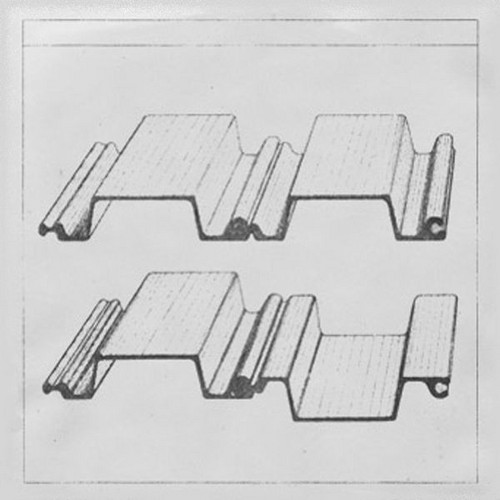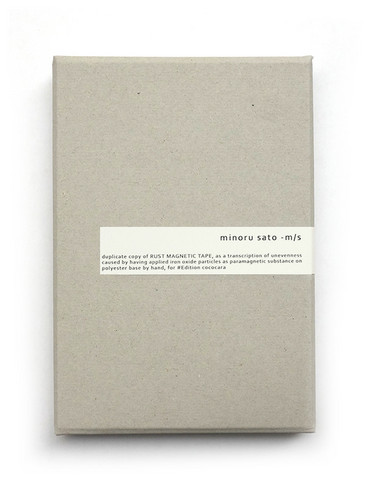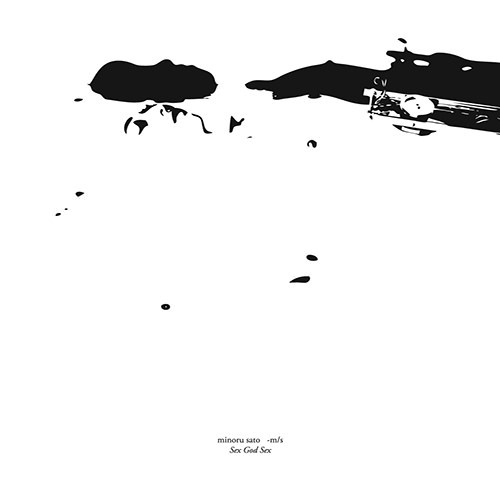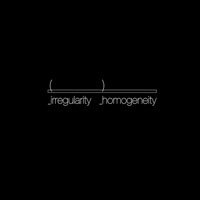Minoru Sato
Tottering Steps
Minoru Sato is a Japanese sound artist who began producing music under the name 'm/s' in 1989. Since then, his work has expanded to sound installations, performances, exhibit curation and written text. He often collaborates with fellow droner and installation artist Naoyuki Arashi, best known as Asuna. On this 7" record released on the Meeuw Muzak label they offer two fine examples of their droning conjurings.
Duplicate Copy of Rust Magnetic Tape
Edition of 60, signed and numbered. Complete title: "Duplicate Copy of Rust Magnetic Tape, as a transcription of unevenness caused by having applied iron oxide particles as paramagnetic substance on polyester base by hand, for #Edition cococara"Minoru Sato -m/s, is a japanese artist. He has an interest in a relationship between a description of nature and an art representation, and he is creating art works per physical phenomena and various concepts. in addition, he has several music projects - …
Sex god sex
“Sex God Sex” is a self-built heavy beat machine, here presented in two versions: a long track recorded on the standard machine and a shorter variation with the portable folding version.Edition of 200 copies in letterpress sleeve. Born in 1963. in 1989, Minoru Sato started activities under the name “m/s”. he established a label called “WrK” for creative activities in 1994, and had been running the label until 2006. he has an interest in a relationship between a description of nature and an art r…
Irregularity/Homogeneity: Emerging from the Perturbation Field
one-sided lp of recordings from the installation of the same name (from a series of works, started in 1991, using fluorescent lamps). Description: an irregular state, when it surrounds us, makes us unable to identify individual things, or to find any law of variations within it. We usually regard it as having no significant nature more than the specific nature from which emerges repetition. It seems homogeneous rather than heterogeneous because we feel it as a form of flatness without spec…



